Center Affiliates
At the Center for Effective Lawmaking, we proudly support and highlight the work of our faculty affiliates, postdoctoral fellows, and graduate affiliates.
Below are the current affiliates of the CEL.
Faculty Affiliates
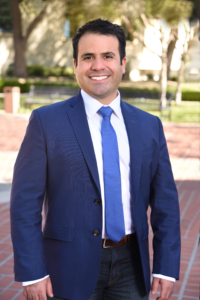
Carlos Algara, Claremont Graduate University
Dr. Carlos Algara is the Mary Toepelt Nicolai & George S. Blar Assistant Professor in Politics & Policy at Claremont Graduate University and was a 2019-2020 American Political Science Association Congressional Fellow placed in the United States Senate. He received his Ph.D. from the University of California, Davis in 2019. His research agenda focuses on the nature of ideological representation in the United States, political parties, electoral accountability, and elite behavior. Dr. Algara’s research has been published in Political Behavior, Political Research Quarterly, PLoS One, Electoral Studies, Politics & Gender, and other outlets. His research has also been featured in popular media outlets such as The New York Times, The Washington Post, The Economist, and Vox.

Andrew Ballard, Florida State University
Andrew Ballard is an Assistant Professor of Political Science at Florida State University. He studies American politics with a particular interest in legislative institutions, political parties, and the interplay between legislators and the public. Some of the over-arching questions he investigates are: Why do minority parties have influence over legislation? How do party goals drive legislative behavior? Why are some legislators and citizens more willing to compromise politically? What are the causes and consequences of polarizing and uncivil rhetoric from legislators? His published work appears in the American Political Science Review, The Journal of Politics, Legislative Studies Quarterly, Party Politics, and elsewhere. He has a book under contract with Oxford University Press and another book manuscript in preparation. He received his Ph.D. in political science from Duke University.

David Barker, American University
David C. Barker is Professor of Government at American University (AU), co-founder of AU’s Program on Legislative Negotiation, and a Nonresident Senior Fellow at the Brookings Institution. He has previously served as Director of the Social and Economic Sciences at the National Science Foundation, Director of the Center for Congressional and Presidential Studies at American University, and Director of the Institute for Social Research at Sacramento State University. Professor Barker studies American political behavior, psychology, and governance. He has served as principal investigator on over 70 externally funded research projects, totaling more than $21 million, and he has authored/coauthored over 80 publications—including five books: Rushed to Judgment (2002; Columbia University Press), Representing Red and Blue (2012; Oxford University Press), One Nation, Two Realities (2019; Oxford University Press), The Politics of Truth in Polarized America (2021; Oxford University Press [edited]); Dealmakers: The Psychology of Legislative Compromise (2025; Oxford University Press). Earlier in his career, he was a professor of Political Science and Religious Studies at the University of Pittsburgh. He has also held visiting appointments at Sciences Po in Paris, the University of Strathclyde in Glasgow, and the University of Sydney.
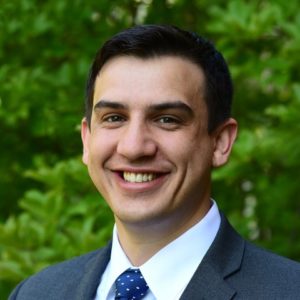
Andrew Clarke, Lafayette College
Andrew Clarke is an Assistant Professor of Government & Law at Lafayette College. He studies legislative politics, with a focus on party factions in the U.S. House of Representatives. Prof. Clarke received a Ph.D. in Government from the University of Virginia and a B.A. in Political Science from Bucknell University. He has published research articles on American political institutions and policy making in journals such as American Journal of Political Science, Legislative Studies Quarterly, Political Science Research and Methods, and the Journal of Public Policy.

Josh Clinton, Vanderbilt University
Josh Clinton is the Abby and Jon Winkelried Chair and Professor of Political Science at Vanderbilt University. His work uses statistical methods to better understand political processes and outcomes. His interests are wide-ranging and include: lawmaking in the U.S. Congress, campaigns and elections, political representation, public policy and the uses and abuses of statistical methods for understanding political phenomena. His research has recently appeared in the American Political Science Review, the American Journal of Political Science, and the Journal of Politics among others. Josh is also an Editor-in-Chief of the Quarterly Journal of Political Science and he received his Ph.D. in Political Science from Stanford University.

Jesse Crosson, Purdue University
Jesse Crosson is an Assistant Professor of Political Science at Purdue University. Previously, he served as an Assistant Professor at Trinity University in San Antonio, TX, and a Research Fellow at the Center for the Study of Democratic Politics at Princeton University, after completing a Ph.D. at the University of Michigan. His research investigates how party competition has transformed American political institutions, including legislative agenda-setting and policy change, the relationship between organized interests and political parties, and resource allocations by individual legislators. His work has been published in the American Political Science Review, Political Science Research and Methods, Legislative Studies Quarterly, Journal of European Public Policy, and other outlets.
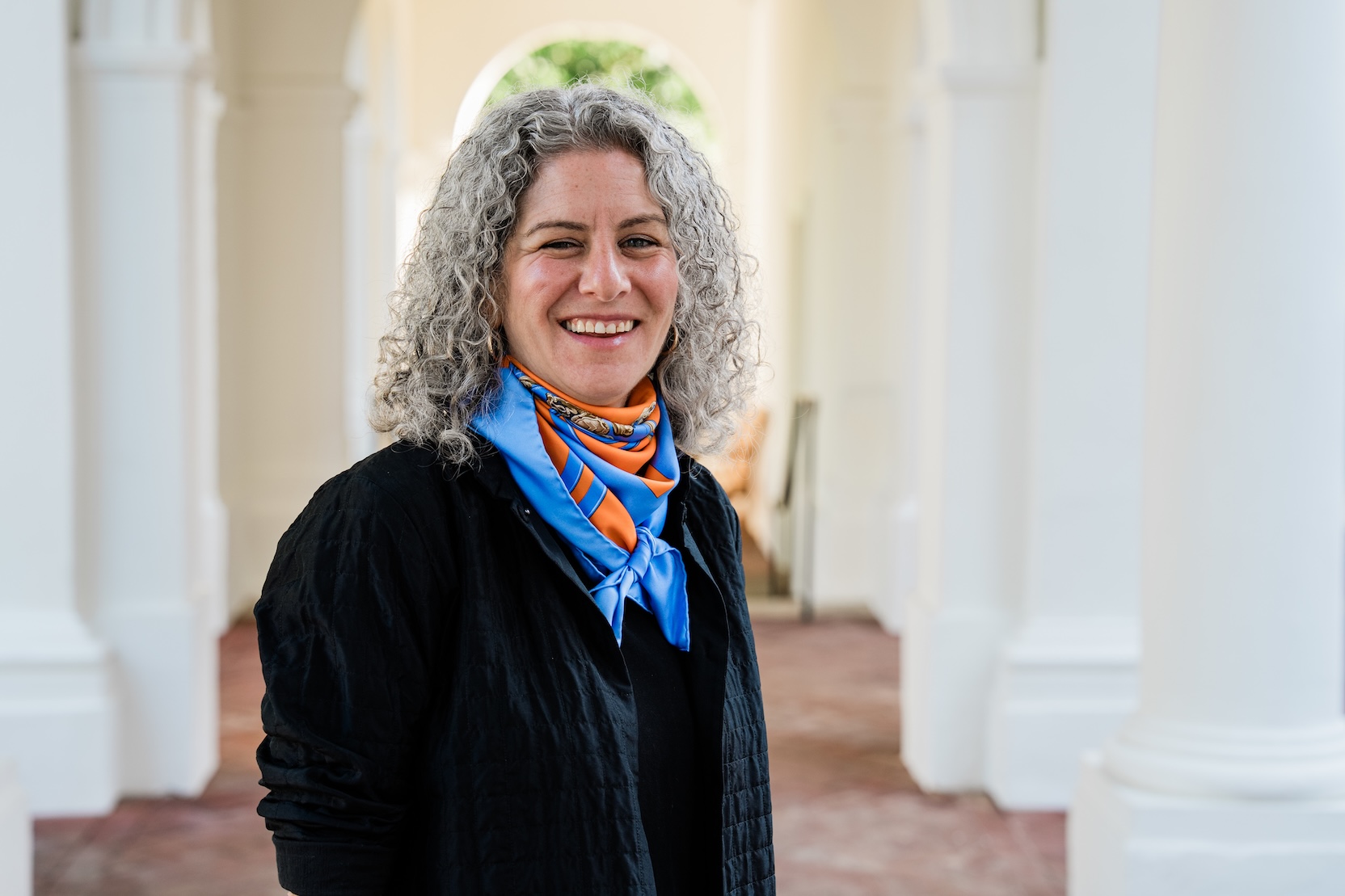
Melanie Egorin, University of Virginia
Melanie Anne Egorin is a professor of practice in public policy at the University of Virginia Frank Batten School of Leadership and Public Policy. A nationally recognized strategic and innovative health policy expert with over 25 years of experience, Dr. Egorin served most recently as assistant secretary for legislation at the U.S. Department of Health and Human Services (HHS), where she was confirmed by the Senate in a bipartisan vote. In this role, she was the principal advisor to the HHS secretary and the liaison for members of Congress and their staff across the broad range of issues handled by the department. Dr. Egorin worked closely with Congress to pass legislation that improved support services for the most vulnerable Americans, strengthened the nation’s public health preparedness, and lowered health care costs. Prior to that role, Dr. Egorin served as a health and tax policy professional on the Committee on Ways and Means in the U.S. House of Representatives, where she worked for nearly a decade to expand health care coverage and improve patient protections. Her health policy career began with her work as an analyst in the Government Accountability Office. Throughout her career, Dr. Egorin has been recognized for her collaborative work style, bipartisan leadership, and mentorship. She received her PhD in medical sociology at the University of California, San Francisco and her Bachelor’s and Master’s degrees from Emory University.
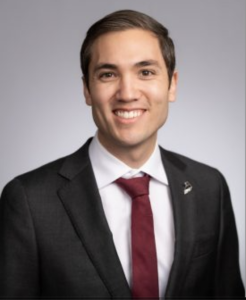
Christian Fong, University of Michigan
Christian Fong is an Assistant Professor at the University of Michigan. He specializes in the study of the United States Congress, and is especially interested in understanding congressional rules, the purposes they serve, and the conditions under which Congress will change them. He received his BSE from Princeton University and his Ph.D. from the Stanford Graduate School of Business. Before joining the faculty at Michigan he was an American Political Science Congressional Fellow, where he was an economic policy advisor to Senator Mike Lee.

SoRelle Wyckoff Gaynor, University of Virginia
SoRelle Wyckoff Gaynor is an Assistant Professor of Public Policy at the University of Virginia Frank Batten School of Leadership and Public Policy, where she specializes in the U.S. Congress and political institutions. Her research focuses on congressional leadership, institutional reform, and partisan communication, and has been published in the Journal of Politics, Legislative Studies Quarterly, Electoral Studies, and other outlets. She is an author of Congress Explained, a textbook on the U. S. Congress, and her book project, Echo Chambers, examines the role of congressional leadership in constituent communication. The National Science Foundation and the American Political Science Association have funded her research. She worked in Congress for several years, first as a press secretary and speech writer for House and Senate leadership, and then as an APSA Public Service Fellow for the U.S. House Select Committee on the Modernization of Congress. Before joining Batten, she was an Assistant Professor of Political Science at College of the Holy Cross in Worcester, Massachusetts. She received her PhD in Government and Politics from the University of Maryland and received her bachelor’s degree in history and journalism from the University of Alabama, with honors.
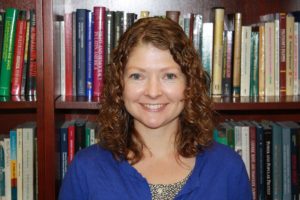
Laurel Harbridge-Yong, Northwestern University
Laurel Harbridge-Yong is a Professor in the Department of Political Science and a Faculty Fellow at the Institute for Policy Research at Northwestern University. She received her Ph.D. in 2009 from Stanford University. Her research explores a range of questions surrounding partisan conflict and the difficulty of reaching bipartisan agreements and legislative compromises in American politics. Her research spans projects on the U.S. Congress, state legislatures, and the mass public. She is the author of two books – Is Bipartisanship Dead? Policy Agreement and Agenda-Setting in the House of Representatives (Cambridge University Press, 2015) and Rejecting Compromise: Legislators’ Fear of Primary Voters (with Sarah Anderson and Daniel Butler, Cambridge University Press, 2020) – and numerous journal articles.
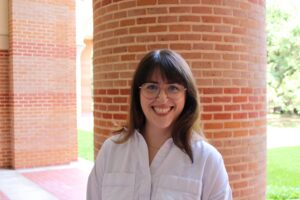
Jaclyn Kaslovsky, Washington University in St. Louis
Jaclyn Kaslovsky is an Assistant Professor at the Washington University in St. Louis. She specializes in American politics, focusing on Congress, representation, and women in politics. In her current work, Professor Kaslovsky analyzes how legislators choose to allocate their resources, including their time and staff, and the effect of these choices on the legislator-constituent relationship. Professor Kaslovsky's other projects leverage unique time series and congressional speech datasets to explore the consequences of increasing diversity in Congress for representation and how legislator behavior has evolved over time. Her work has been published in journals such as the American Political Science Review and The Journal of Politics., and she received her Ph.D. in Government from Harvard University.

Justin Kirkland, University of Virginia
Justin Kirkland is an Associate Professor of Politics and Policy at the University of Virginia. He studies representation, legislative politics, and subnational politics, with a focus on how institutional design influences the quality of representation in the US. Prof. Kirkland received his Ph.D. from the University of North Carolina at Chapel Hill, under the supervision of Thomas Carsey. He serves as the co-editor of Legislative Studies Quarterly. His research has appeared in journals like American Political Science Review, American Journal of Political Science, and The Journal of Politics.

Michael Kistner, University of Houston
Michael Kistner is an Assistant Professor of Political Science at the University of Houston. He studies representation, policymaking, and the influence of money in American legislatures (both in Congress and the states). In his award-winning book manuscript Paying for the Party: How Fundraising Demands Lead to Less Productive and Representative Legislatures, Kistner explores the causes and consequences of party-driven fundraising demands. His research has been published in the Journal of Politics, Legislative Studies Quarterly, the Journal of Political Institutions and Political Economy, and elsewhere. Before joining the University of Houston, Kistner received his joint Ph.D. in Politics and Social Policy from Princeton University.

Mary Kroeger, University of North Carolina at Chapel Hill
Mary Kroeger is an Assistant Professor of Political Science at the University of North Carolina, Chapel Hill. She received her Ph.D. in Politics and Social Policy from Princeton University, and holds a B.A. from the University of North Carolina, Chapel Hill. Her research interests are in U.S. state politics, American political institutions, bureaucratic-legislative interactions, policy diffusion, and quantitative methods. Her book project, entitled Outsourcing Legislation: How Non-Legislators Write U.S. State Law, studies the origins of laws that govern citizens, businesses, and bureaucrats within the U.S. states. Further, it asks under what conditions do non-legislative actors play a role in crafting statutory law? This work finds that interest groups, companies, think tanks, and unelected bureaucrats play a huge role in crafting the exact parameters and specific wording of the laws that govern their behaviors.
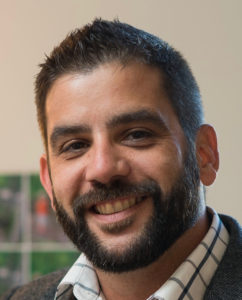
Tim LaPira, James Madison University
Tim LaPira (Ph.D., Rutgers University) is Professor of Political Science and Founding Director of the Political Reform and Innovation Lab at James Madison University in Virginia, and Co-Editor of Interest Groups & Advocacy. He is an expert on Congress and its staff, interest groups and the lobbying profession, and political elite behavior. His books include Revolving Door Lobbying: Public Service, Private Influence, and the Unequal Representation of Interests (University Press of Kansas, 2017) and Congress Overwhelmed: the Decline of Congressional Capacity and Prospects for Reform (University of Chicago Press, 2020). In 2019, he was the American Political Science Association Public Service Fellow at the House Select Committee on the Modernization of Congress. Previously, he worked at the Center for Responsive Politics, where he created the OpenSecrets.org Lobbying and Revolving Door databases. Dr. LaPira was recognized with the 2022 James Madison University College of Arts and Letters Madison Scholar Award for outstanding scholarly achievements.
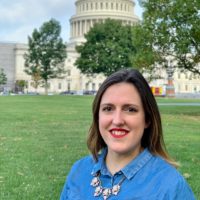
Erinn Lauterbach, Villanova University
Erinn Lauterbach is an Assistant Professor of Political Science at Villanova University. She specializes in American political institutions, especially the U.S. Congress and the separation of powers, lawmaking, and representation; her current research focuses on the bill writing behavior of members of Congress. She completed her Ph.D. in Political Science at the University of California, Riverside and is also a graduate of Central College. Prior to pursuing graduate school, she worked as both a Scheduler and Legislative Aide for a member of the U.S. House of Representatives.
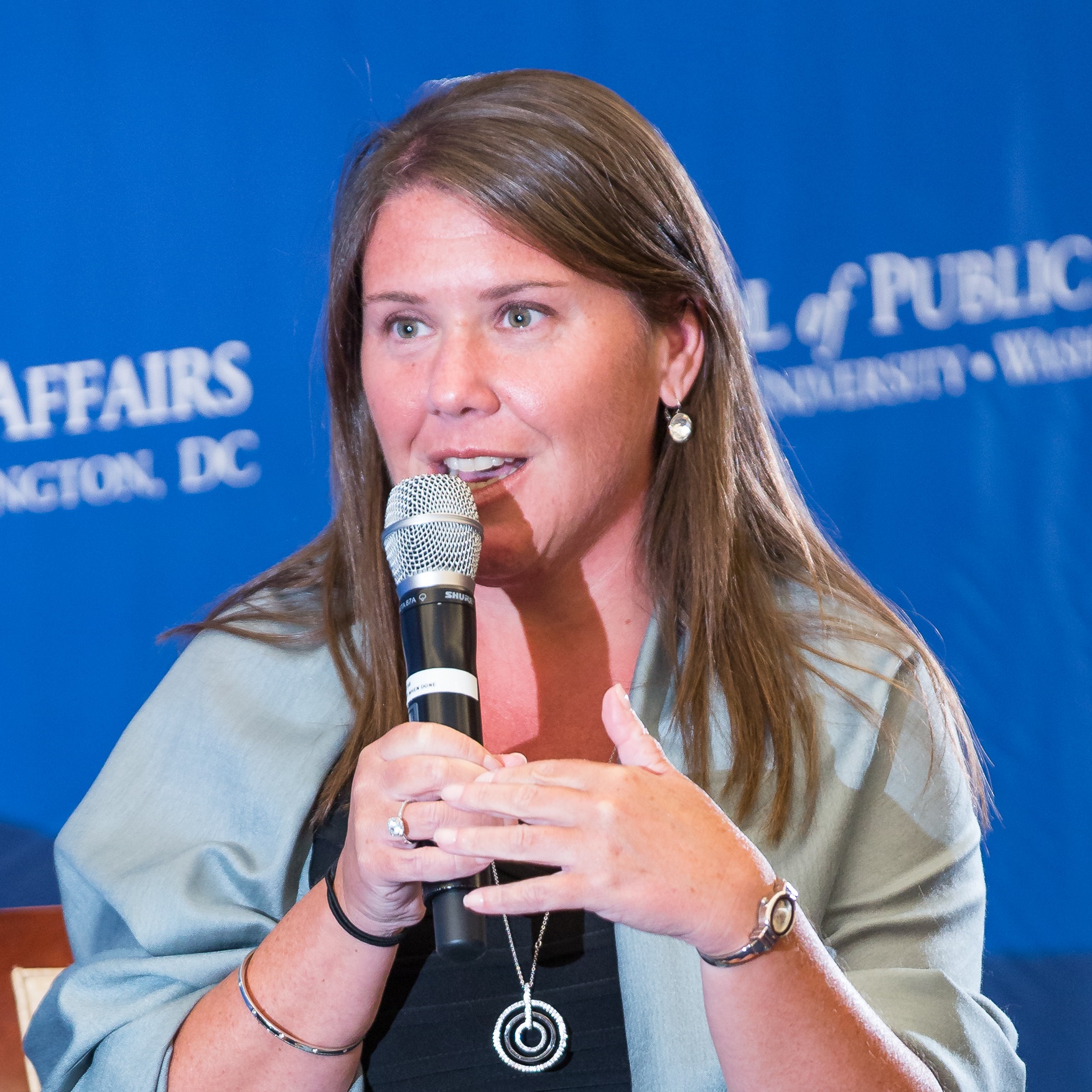
Jennifer Lawless, University of Virginia
Jennifer L. Lawless is the Leone Reaves and George W. Spicer Professor of Politics at the University of Virginia and the Chair of the Politics Department. She also has an affiliation with UVA’s Miller Center. Jen’s research focuses on political ambition, campaigns and elections, and media and politics. She is the author or co-author of nine books, including News Hole: The Demise of Local Journalism and Political Engagement (with Danny Hayes) and It Still Takes a Candidate: Why Women Don't Run for Office (with Richard L. Fox). Her research, which has been supported by the National Science Foundation, has appeared in numerous academic journals, and is regularly cited in the popular press. From 2019-2025, she served as the Co-Editor-in-Chief of the American Journal of Political Science. She is also the recipient of the 2023 Shorenstein Center’s Goldsmith Book Prize (for the academic book that examines the intersection among media, politics, and public policy). Jen graduated from Union College with a B.A. in political science, and Stanford University with an M.A. and Ph.D. in political science. A long time ago (2006), she sought the Democratic nomination for the U.S. House of Representatives in Rhode Island’s second congressional district. Although she lost the race, she remains an obsessive political junkie.

Geoff Lorenz, University of Nebraska-Lincoln
Geoffrey Lorenz is an Associate Professor of Political Science at the University of Nebraska-Lincoln. His expertise is in the effectiveness of lobbying, advocacy, and other forms of policy entrepreneurship and how political institutions condition the ability of individual actors to advance their policy agendas. His research on these subjects has been published in the American Political Science Review, the Journal of Politics, and Interest Groups & Advocacy. Geoff received his Ph.D. from the University of Michigan and was a postdoctoral fellow for the Center for Effective Lawmaking at the University of Virginia. Before entering academia, he worked as a professional lobbyist at the Texas State Legislature, representing clients in a wide range of substantive domains.

Amy D. Meli, Hollins University
Amy Meli is an assistant professor of political science at Hollins University in Roanoke, VA. Her research centers around interest groups and the way they influence the political system. Research projects include an examination of the way involvement in interest groups influences interest group member political efficacy and affective polarization, the relationship between interest groups and the political parties, and corporate reactions to the January 6 insurrection. She also studies the relationship between interest groups and legislators, especially the relationship between interest group involvement and legislative effectiveness. Amy holds a Ph.D. in political science from the University of Maryland, an M.A. from the Graduate School of Political Management at The George Washington University, and a B.A. in Political Science and Communication Studies from Virginia Tech. She comes to academia after a career as a practitioner of politics, including work in the U.S. House of Representatives, corporate public affairs, grassroots organizations, and political action committees. Prior to her work at Hollins, Amy served as a postdoctoral research associate at the Frank Batten School of Leadership and Public Policy at the University of Virginia.

Kris Miler, University of Maryland
Kris Miler is an associate professor in the Department of Government and Politics at the University of Maryland. Her work focuses on political representation in the U.S. Congress, especially the extent to which the interests of unorganized citizens and organized interests are represented in the lawmaking process. She is the author of Poor Representation: Congress and the Politics of Poverty (Cambridge University Press, 2018), which won the APSA Woodrow Wilson Award for the best book on government, politics, or international affairs. In this research, she demonstrates in multiple ways how Congress has failed to provide political representation to poor Americans, even in districts with high levels of poverty, leaving the poor to rely on surrogate representatives for a voice in Congress. She is also the author of Constituency Representation in Congress: The View from Capitol Hill (Cambridge University Press, 2011), which received the APSA Alan Rosenthal Award for research on questions of importance to legislators and their staff with potential to strengthen the practice of representative democracy. This book shows how cognitive biases cause legislators and their staff to see an incomplete picture of the constituents in their district, and reveals the impact of these perceptions on legislators’ behavior in the policymaking process. Professor Miler’s research has received funding from the National Science Foundation (NSF), as well as from organizations such as the Hewlett Foundation, Democracy Fund, and Dirksen Center. Her current research includes two collaborative, interdisciplinary projects: one examines cooperation and conflict in the U.S. House through the lens of organizational psychology, and the other uses computational linguistics to identify informal congressional networks and patterns of legislative behavior. Professor Miler has received multiple teaching awards and regularly teaches in the areas of legislative politics, interest groups, and social movements.

Michael Minta, University of Minnesota, Twin Cities
Michael D. Minta is a professor in Political Science at the University of Minnesota, Twin Cities. He received a Ph.D. in Political Science from the University of Michigan, Ann Arbor. He is one of the country’s leading experts in the study of the political representation of African American, Latino, and women interests in the United States. His book, Oversight: Representing Black and Latino Interests in Congress is a valuable guide that scholars, political leaders, and the legal community consult when assessing whether diversity in legislatures improves responsiveness to minority interests. Currently, Dr. Minta is working on a new project that examines the legislative effectiveness of minority interest groups and their congressional allies.

Emily Cottle Ommundsen, University of Mississippi
Emily Cottle Ommundsen is an Assistant Professor of Political Science at the University of Mississippi. Her research focuses on American political institutions, particularly congressional representation and institutional capacity. Her research has been published in Legislative Studies Quarterly, Political Behavior, and PS: Political Science & Politics. Ommundsen earned her M.A. and Ph.D. in Political Science from the University of North Carolina at Chapel Hill, and her B.A. in Political Science and Religious Studies from Bucknell University. Previously, she worked for both the United States Senate and House of Representatives in personal and committee offices.
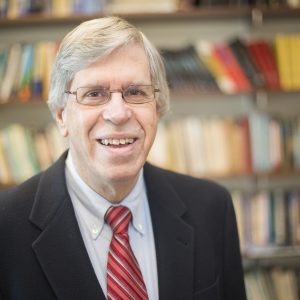
Bruce Oppenheimer, Vanderbilt University
Bruce Oppenheimer is a Professor Emeritus of Political Science at Vanderbilt University. He earned his B.A. from Tufts University and his M.A. and Ph.D. from the University of Wisconsin. He has been an American Political Science Association Congressional Fellow and a Fellow in Governmental Studies and Guest Scholar at the Brookings Institution. Professor Oppenheimer’s research focuses on Congress, congressional and presidential elections, and public policy. He has published numerous books and journal articles throughout his professional career. His co-authored book, Sizing Up the Senate: The Unequal Consequences of Equal Representation, won the Lyndon Baines Johnson Library’s D.B. Hardeman Award as the best book on Congress. He is co-editor and contributor to the book, Congress Reconsidered, the twelfth edition of which was published in 2021. He has also written extensively on congressional struggles in developing energy policy over the past half century. In addition, he served as co-editor of Legislative Studies Quarterly.

Ju Yeon (Julia) Park, The Ohio State University
Ju Yeon (Julia) Park is an Associate Professor at the Department of Political Science at The Ohio State University. Her research focuses on politicians’ legislative and communication styles they choose to perform under various institutional constraints in American politics context, and she further explores electoral consequences and policy implications resulting from their stylistic choices. For the research, she uses text analysis, formal modeling and experimental methods. Dr. Park is the author of Hearings on the Hill: The Politics of Informing Congress published by Cambridge University Press. She published numerous articles in interdisciplinary and political science journals including the Proceedings of the National Academy of Sciences, American Political Science Review, Journal of Politics, Political Science Research and Methods, Political Analysis, and more. Her research has been featured in media outlets such as the Washington Post, Bloomberg, Roll Call, and FiveThirtyEight. She received her Ph.D. in Politics from New York University in 2015.
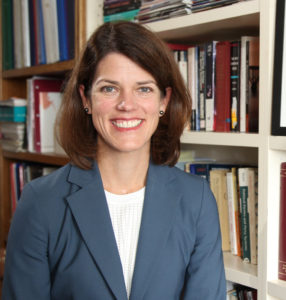
Kathryn Pearson, University of Minnesota
Kathryn Pearson is an Associate Professor of Political Science at the University of Minnesota. She specializes in American politics; her research focuses on the United States Congress, women and politics, congressional elections, and political parties. Her research has recently appeared in The Journal of Politics, Perspectives on Politics, Legislative Studies Quarterly, Political Research Quarterly, and Politics & Gender, and she has published several book chapters. Her book titled Party Discipline in the House of Representatives was published in 2015 by the University of Michigan Press. It combines quantitative data analysis and interviews of key elites to examine party leaders' strategic use of their legislative prerogatives to reward loyal party members and punish defectors. It is an extension of her dissertation that won the APSA Legislative Studies Section's Carl Albert Award for the best doctoral dissertation in the area of legislative studies. She is working on a new book project, Gendered Partisanship in the House of Representatives, analyzing congresswomen's pursuit of power in a partisan era. Pearson is a recipient of the Morse Alumni Award for Outstanding Contributions to Undergraduate Education. In 2002-03, Pearson was a Research Fellow at the Brookings Institution, and from 1993 to 1998, she worked on Capitol Hill as a Legislative Assistant for two members of Congress. Professor Pearson received her Ph.D. from the University of California, Berkeley.

Connor Halloran Phillips, Carnegie Mellon University
Connor Halloran Phillips is an Assistant Teaching Professor at the Carnegie Mellon Institute for Strategy & Technology (CMIST). His research examines interest groups, parties, legislatures, and elections in the US with a focus on how federalism shapes phenomena such as partisan polarization and voter participation. In his current work, Professor Phillips analyzes interest groups’ campaign contributions and ratings of state legislators to understand the strategies groups adopt in engaging with politics and to assess their role in promoting polarization at the state level. Beyond this project, some of his other research explores the impact of state and local electoral rules on party registration and turnout as well as how growing extremism in state legislatures influences the ideological positions of candidates for Congress. Professor Phillips was born in Pittsburgh, PA and attended Duke University, graduating in 2017 with a B.A. in Political Science. Before joining Carnegie Mellon, he received a Ph.D. in Political Science from Harvard University in 2023 and served as a postdoctoral scholar at Princeton University and Vanderbilt University.
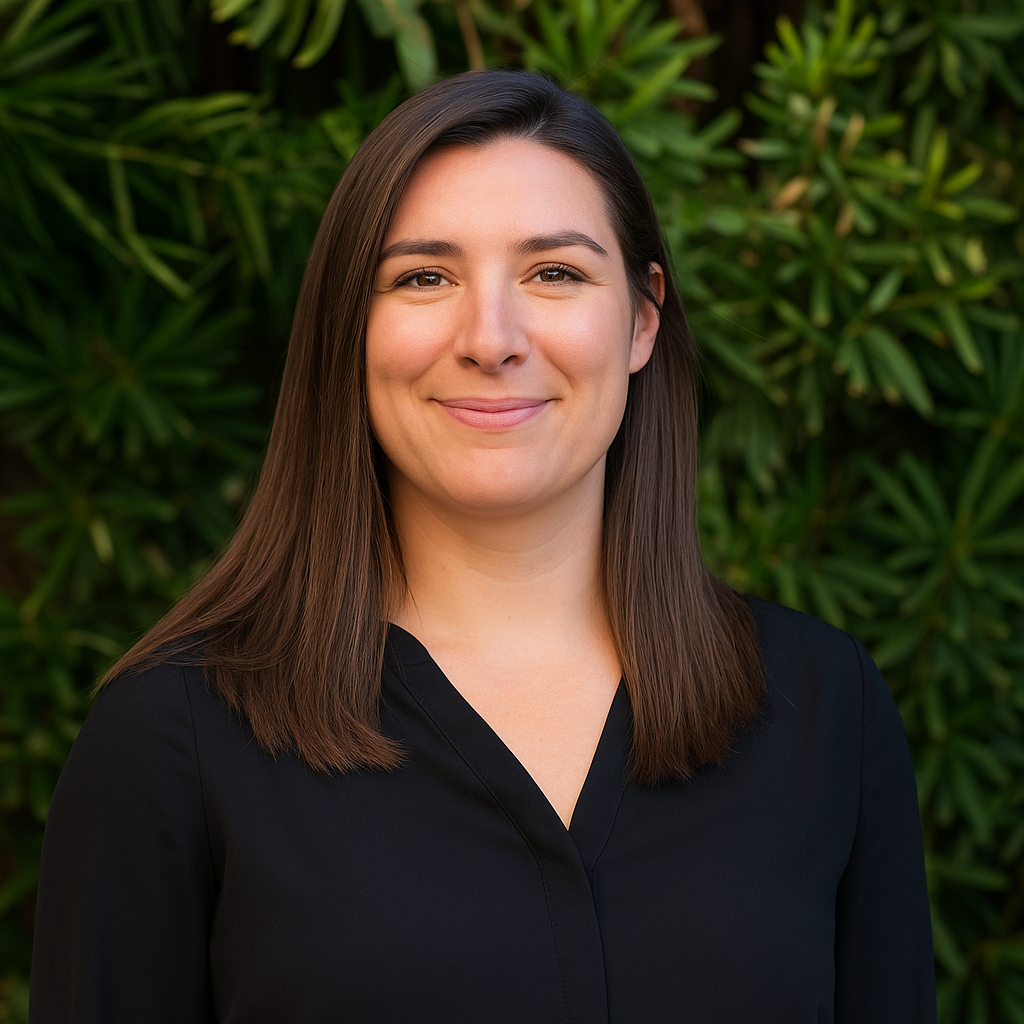
Tessa Provins, University of Arizona
Tessa Provins is an Assistant Professor in the School of Government and Public Policy at the University of Arizona. Her research focuses on American legislative institutions, with particular attention to how the design of legislative rules and procedures shapes lawmaking and representation. She examines how institutional features—including committee referral practices, debate rules, and party control of the agenda—affect the ability of legislatures to produce laws and how these outcomes vary across groups divided by race, gender, and party affiliation. Her ongoing research examines the impacts of legislative rules on parties’ ability to advance their agendas across different stages of the legislative process. Her work has been published in several peer-reviewed outlets, including the Journal of Politics, Journal of Public Policy, Political Research Quarterly, Legislative Studies Quarterly, Public Choice, Publius: The Journal of Federalism, and the Election Law Journal.

Molly Reynolds, Brookings Institution
Molly Reynolds is a fellow in Governance Studies at Brookings. She studies Congress, with an emphasis on how congressional rules and procedure affect domestic policy outcomes. She is the author of the book, Exceptions to the Rule: The Politics of Filibuster Limitations in the U.S. Senate, which explores creation, use, and consequences of the budget reconciliation process and other procedures that prevent filibusters in the U.S. Senate. She also supervises the maintenance of Vital Statistics on Congress, Brookings’s long-running resource on the first branch of government. Reynolds received her Ph.D. in political science and public policy from the University of Michigan and her A.B. in government from Smith College, and previously served as a senior research coordinator in the Governance Studies program at Brookings. In addition, she has served as an instructor at George Mason University. In addition, she has served as an instructor at George Mason University and at Smith College.

Jason Roberts, University of North Carolina at Chapel Hill
Jason M. Roberts is professor of Political Science at the University of North Carolina at Chapel Hill. His research centers on American Political Institutions with a focus on legislative voting and parliamentary procedure in the U.S. Congress. He also works on congressional elections and the development of political institutions in the U.S.

Steven Rogers, Saint Louis University
Steven Rogers is an Associate Professor of Political Science at Saint Louis University. His research focuses on elections and representation in American politics, particularly at the state level. His recent book, Accountability in State Legislatures, argues that there is limited accountability in state legislative elections. Rogers’s research has also appeared in journals such as the American Political Science Review, American Journal of Political Science, and Legislative Studies Quarterly. He also serves as the director of the SLU/YouGov Poll, the only regular public opinion survey conducted in Missouri.

Leah Rosenstiel, Vanderbilt University
Leah Rosenstiel is an Assistant Professor of Political Science at Vanderbilt University. She studies American political institutions, with a focus on Congress and public policy. Her current work examines how the congressional bargaining process shapes, and at times distorts, federal grant programs. She received a joint Ph.D. in Politics and Social Policy from Princeton University in 2021 and a B.A. in Political Science from Carleton College in 2014. Prior to beginning her graduate studies, she worked as a research assistant on K-12 education policy at the Congressional Research Service.

Kelsey Shoub, University of Massachusetts Amherst
Kelsey Shoub is an associate professor at the University of Massachusetts Amherst School of Public Policy. Prior to this role, she was an assistant professor in the Department of Political Science at the University of South Carolina. Professor Shoub's research and teaching interests span American Politics, Public Policy, and Methodology. Her work, more specifically, examine public policy process, race and policy, framing, and Congress using text analysis, machine learning, and big data. She is a co-author of Suspect Citizens: What 20 Million Traffic Stops Tell Us About Race and Policing (2018, Cambridge University Press), which is a co-winner of the 2019 Pritchett Book Award from the APSA Law and Courts Section.
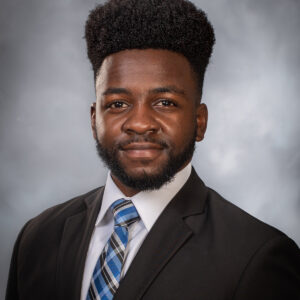
Darrian Stacy, United States Naval Academy
Darrian Stacy is an Assistant Professor of Political Science in the Department of Political Science at the United States Naval Academy, where he has served since 2021. He earned a Ph.D. and M.A. in Political Science from Vanderbilt University, along with a Certificate in College Teaching, and holds dual B.A. degrees in Political Science and Philosophy from the University of Georgia. His research focuses on American political institutions, with an emphasis on bureaucracy, legislative politics, policymaking, and the implications of economic inequality within the U.S. Congress. His work has appeared in leading journals such as the American Journal of Political Science and Legislative Studies Quarterly.

Sean Theriault, University of Texas, Austin
Professor Theriault, who is fascinated by congressional decision-making, is currently researching the distinction between ideological and war-making behavior in the U.S. Congress. He has published five books — most recently, Congress: The First Branch (with Mickey Edwards) and The Great Broadening (with Bryan Jones and Michelle Whyman) — and dozens of articles on subjects ranging from party polarization in Congress to the Pendleton Act of 1883. Professor Theriault’s latest research explores the social fabric in the U.S. Senate. He examines if social connectedness in the Senate has consequences on both the health of the Senate and the legislative effectiveness of the senators. Professor Theriault, whose classes include the U.S. Congress, Congressional Elections, Party Polarization in the United States, and the Politics of the Catholic Church, is passionate about teaching. He has received numerous teaching awards, including the Friar Society Teaching Fellowship (the biggest undergraduate teaching award at UT) in 2009, UT Professor the Year in 2011, and the Regents' Outstanding Teaching Award in 2014. In 2012, he was inducted into the Academy of Distinguished Teachers. He has experienced no greater honor than “officiating” at two weddings for former students.
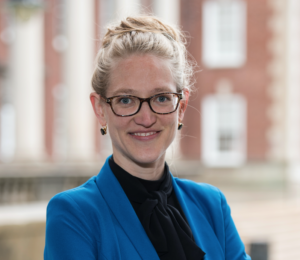
Danielle Thomsen, University of California, Irvine
Danielle Thomsen is an Associate Professor of Political Science at the University of California, Irvine. Her research focuses on American politics, the U.S. Congress, and gender and politics. Her first book, Opting Out of Congress: Partisan Polarization and the Decline of Moderate Candidates, shows that ideological moderates are less likely to run for and remain in Congress than those at the extremes, further exacerbating the gulf between the two parties. Her current work examines fundraising patterns in U.S. House elections from 1980 to present. Her second book, The Money Signal: How Fundraising Matters in American Politics, explores how money is used as a focal point for candidates, donors, journalists, and party leaders, and it demonstrates that money matters long before and well after the election. Her articles have appeared in the American Political Science Review, the Journal of Politics, Legislative Studies Quarterly, Perspectives on Politics, and other outlets.

Sarah Treul, University of North Carolina at Chapel Hill
Sarah Treul is a Professor of Political Science at the University of North Carolina at Chapel Hill. She also serves as the Faculty Director for UNC’s Program for Public Discourse. She is the recipient of the Tanner Award for Excellence in Undergraduate Teaching, the Chapman Family Teaching Award, and the Honors Carolina’s Manekin Award for Teaching Excellence. Her research interests are broadly in the area of American political institutions. Her research frequently focuses on how institutions affect decision-making - and more broadly- representation in the U.S. Congress. Her research agenda also examines the influence of primary elections on outcomes and behavior. Her most recent projects explore the role of previous political experience in aiding (or, in today’s climate sometimes harming) candidates’ success in congressional primaries and how primary candidates present themselves to their constituents. Other ongoing projects examine the minority party’s strategy in today’s polarized Congress and the role of member inexperience in decreasing legislative capacity in Congress. Treul also recently published a book on state delegations in Congress with Cambridge University Press.

Arjun Vishwanath, Boston University
Arjun Vishwanath is an assistant professor in the Political Science department at Boston University. His research focuses on representation, public opinion, and legislative politics in American politics. He is working on a book manuscript on how American citizens’ values are represented by their members of Congress. His other research explores the role of values and ideology in public opinion along with the effects of electoral institutions on representation. His work has been published in the American Journal of Political Science and Studies in American Political Development. He received his PhD from Harvard University in Government in 2023 and his BA from Swarthmore College in Political Science and Mathematics in 2016.

Gerry Warburg, University of Virginia
Gerry Warburg teaches courses at the Batten School on Congress, U.S. foreign policy and advocacy strategies. He is the lead faculty member in the Batten School massive open online course (MOOC) “Public Policy Challenges of the 21st Century,” which is available on Coursera. His research interests include the study of best practices by non-governmental organizations and the evolution of U.S. nuclear non-proliferation policies. Warburg’s professional background encompasses a broad array of public service. Previously, he served as Executive Vice President of Cassidy & Associates, a leading government relations firm. Prior to that position, he worked as a legislative assistant for the U.S. Senate and House of Representatives under Senate Whip Alan Cranston and Representative Jonathan Bingham. His stints teaching include Georgetown University’s School of Foreign Service, the University of Pennsylvania Annenberg School for Communication, the Brookings Institution and his alma maters of Stanford University and Hampshire College. He is the author of Saving Point Reyes: How an Epic Conservation Victory Became a Tipping Point for Environmental Policy Action (2023, University Press of Kansas), which is has been nominated for the Rachel Carson Prize for environmental reporting and scholarship

Hye Young You, Princeton University
Hye Young You is Associate Professor in the Department of Politics and School of Public and International Affairs at Princeton University. Her primary research interest focuses on how organized interests and money influence democratic representation in the US, at both the national and local levels. In particular, her research explores the mechanism behind the lobbying process and sheds light on organized interest groups that play crucial roles in the political process, but have been understudied such as local governments and foreign interests. She is also interested in public finance and the quality of government services at municipal governments in the US. She received her Ph.D. in political economy and government from Harvard University in 2014.
Research Affiliates

Peter Bucchianeri, Vanderbilt University
Peter Bucchianeri is a research affiliate for the Center for Effective Lawmaking at Vanderbilt University. His expertise is in American politics, primarily in the areas of state and local government, legislative institutions, and representation. Prior to joining the Center, Peter completed his Ph.D. in Government and Social Policy at Harvard University. He is a graduate of UCLA and the University of Pennsylvania.
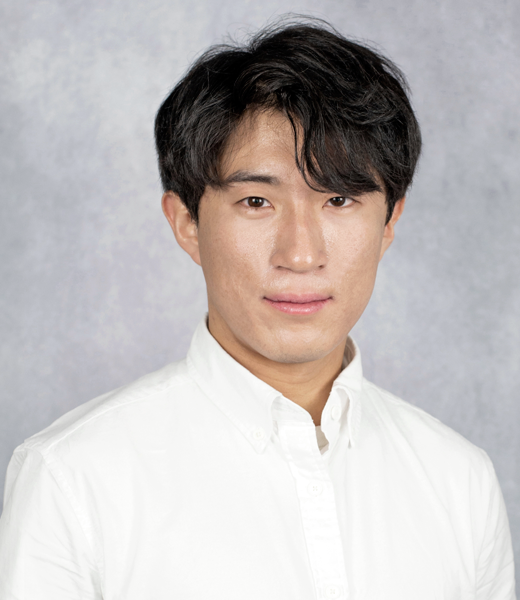
Kisoo Kim, University of Virginia
Kisoo Kim is a postdoctoral research associate at the Frank Batten School of Leadership and Public Policy at the University of Virginia. His research examines how elections and political information hold representatives accountable in democratic systems. He uses econometric methods for causal inference to study how democratic institutions shape elected officials’ behavior, with a focus on legislators' policy positions and legislative productivity. He earned his Ph.D. from the Harris School of Public Policy at the University of Chicago in 2025.
Graduate Affiliates
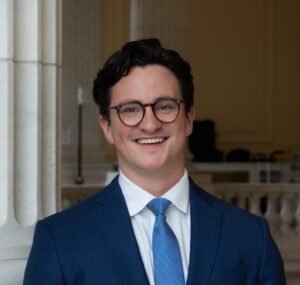
Patrick Buhr, Vanderbilt University
Patrick Buhr is a doctoral student in the Department of Political Science at Vanderbilt University. He studies American political institutions with a focus on the U.S. Congress and federal bureaucracy. Prior to Vanderbilt, Patrick worked in the U.S. House of Representatives covering health policy and the Select Committee on the Modernization of Congress. He graduated from the University of Colorado at Boulder in 2017 with a B.A. in Economics and Political Science.

Mackenzie Dobson, University of Virginia
Mackenzie Dobson is a doctoral student at the University of Virginia, and holds a M.A. and B.S. in Political Science from Appalachian State University. Her research interests consist of American legislative institutions, legislative effectiveness, and public policy.

